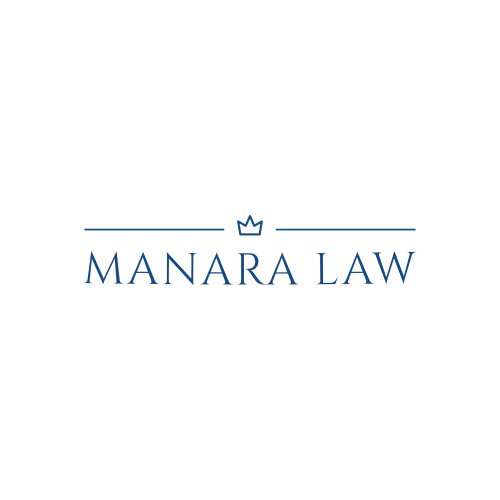Best Corporate Governance Lawyers in London
Share your needs with us, get contacted by law firms.
Free. Takes 2 min.
List of the best lawyers in London, United Kingdom
Legal guides written by Crypto Legal:
- The Evolution of Crypto Fraud in 2025: Forensic and Legal Strategies for Prevention and Recovery
About Corporate Governance Law in London, United Kingdom
Corporate governance refers to the system of rules, practices, and processes by which companies are directed and controlled. In London, United Kingdom, corporate governance encompasses a broad range of legal and regulatory requirements that impact how corporations are managed, how decisions are made, and how accountability is enforced. The focus is on creating a framework that balances the interests of a company’s many stakeholders, including shareholders, management, customers, suppliers, financiers, government, and the community.
London is home to many leading corporations and financial institutions, making it a hub for corporate governance activities. Companies listed on the London Stock Exchange and other regulated markets in the UK must adhere to strict governance standards to maintain fairness, transparency, and integrity in business operations. This landscape is shaped by UK company law, stock market regulations, codes of best practice, and European legal influences.
Why You May Need a Lawyer
Engaging a lawyer experienced in corporate governance in London may be necessary for a variety of reasons. Common situations where legal assistance is sought include:
- Establishing a new company and setting up compliance structures
- Ensuring the board of directors complies with fiduciary and statutory duties
- Advising on regulatory compliance, including the UK Corporate Governance Code
- Assisting with annual general meetings and statutory reporting requirements
- Resolving shareholder disputes or conflicts of interest
- Guiding takeovers, mergers, and acquisitions
- Addressing allegations of director misconduct or corporate wrongdoing
- Advising on executive remuneration and disclosure requirements
- Supporting compliance with anti-bribery and anti-corruption laws
- Overseeing related party transactions and other sensitive corporate activities
A corporate governance lawyer provides tailored advice, helps prevent legal breaches, and reduces the risk of costly litigation or regulatory penalties.
Local Laws Overview
The main legal framework for corporate governance in London and the wider UK is set out in the Companies Act 2006. This Act specifies the duties of company directors, shareholder rights, and reporting obligations. Public companies listed on major exchanges must follow additional regulations, including the Financial Conduct Authority’s Listing Rules and Disclosure Guidance and Transparency Rules.
The UK Corporate Governance Code is a set of best practice guidelines for listed companies. Its key principles include leadership, accountability, remuneration, relations with shareholders, and the effectiveness of the board. While compliance with the Code is not technically mandatory, companies must either comply or explain why they do not (known as the comply or explain principle).
London-based companies are also affected by anti-bribery and anti-money laundering laws, data protection regulations under the UK GDPR, and rules concerning whistleblowing. Overseas companies operating in London may have additional cross-border compliance requirements. Regulatory oversight is provided by bodies such as the Financial Conduct Authority, Competition and Markets Authority, and the Insolvency Service.
Frequently Asked Questions
What is the UK Corporate Governance Code?
The UK Corporate Governance Code is a set of principles and standards of good practice for listed companies. It focuses on board leadership, effectiveness, accountability, remuneration, and shareholder relations. Companies must explain in their annual reports how they have applied the Code.
Are private companies subject to the same corporate governance standards as public companies?
No, the strictest standards of corporate governance apply to public companies, especially those listed on regulated markets. Private companies still have governance obligations under the Companies Act 2006 but are not required to follow the UK Corporate Governance Code.
What are directors' duties under UK law?
Directors must act within their powers, promote the success of the company, exercise independent judgment, avoid conflicts of interest, not accept benefits from third parties, and declare interests in proposed transactions or arrangements.
What happens if a company breaches corporate governance regulations?
Breaches may lead to financial penalties, disqualification of directors, regulatory investigations, lawsuits from shareholders, and reputational damage. Seeking legal advice can help companies address breaches before they escalate.
Do all companies in London need to appoint a company secretary?
Only public limited companies (PLCs) are legally required to appoint a company secretary. Private companies do not need to, unless their articles of association require it.
How often must companies hold annual general meetings?
Public companies must hold annual general meetings (AGMs) every calendar year. Private companies are generally not required to hold AGMs unless specified in their articles of association.
What disclosures are companies required to make to shareholders?
Companies must disclose annual financial statements, director’s reports, and other material relating to significant events, shareholder meetings, executive remuneration, and corporate governance arrangements.
How are shareholder disputes typically resolved?
Disputes can be resolved through negotiation, mediation, arbitration, or litigation. Legal advice is crucial in determining the best approach and protecting the interests of all parties involved.
Is it necessary to adopt a corporate governance policy?
While not mandatory for all companies, having a clear corporate governance policy is considered best practice, especially for larger or publicly listed companies. It helps set expectations and ensures compliance.
Are there consequences for failing to comply with the 'comply or explain' requirement?
If a listed company does not comply with the UK Corporate Governance Code, it must provide a clear and detailed explanation. Failure to do so may result in regulatory scrutiny, negative investor perception, and impact on the company’s reputation.
Additional Resources
To further understand or obtain advice on corporate governance in London, the following resources and organizations may be helpful:
- Financial Conduct Authority (FCA) - Oversees conduct and compliance for UK financial markets
- UK Government's Companies House - Official register of companies, providing guidance on company law
- Institute of Directors (IoD) - Offers corporate governance best practice and director training
- The UK Corporate Governance Code (available from the Financial Reporting Council)
- Law Society of England and Wales - Directory of solicitors and legal practice guidance
- Chartered Governance Institute UK and Ireland - Professional body for governance professionals
Next Steps
If you require legal assistance regarding corporate governance in London, consider the following actions:
- Assess your company’s needs and identify specific corporate governance concerns or questions
- Gather all relevant company documents, such as articles of association, board minutes, and policy manuals
- Consult with a qualified solicitor specializing in corporate law and governance in the United Kingdom
- Discuss your circumstances and seek tailored advice on fulfilling your legal and regulatory duties
- Implement recommendations to improve compliance, transparency, and risk management within your business
- Stay informed about changes in legislation and best practices by regularly reviewing guidance from industry bodies and regulators
Taking these steps promptly can help protect your company, directors, and shareholders while fostering reliable and ethical business operations.
Lawzana helps you find the best lawyers and law firms in London through a curated and pre-screened list of qualified legal professionals. Our platform offers rankings and detailed profiles of attorneys and law firms, allowing you to compare based on practice areas, including Corporate Governance, experience, and client feedback.
Each profile includes a description of the firm's areas of practice, client reviews, team members and partners, year of establishment, spoken languages, office locations, contact information, social media presence, and any published articles or resources. Most firms on our platform speak English and are experienced in both local and international legal matters.
Get a quote from top-rated law firms in London, United Kingdom — quickly, securely, and without unnecessary hassle.
Disclaimer:
The information provided on this page is for general informational purposes only and does not constitute legal advice. While we strive to ensure the accuracy and relevance of the content, legal information may change over time, and interpretations of the law can vary. You should always consult with a qualified legal professional for advice specific to your situation.
We disclaim all liability for actions taken or not taken based on the content of this page. If you believe any information is incorrect or outdated, please contact us, and we will review and update it where appropriate.

















